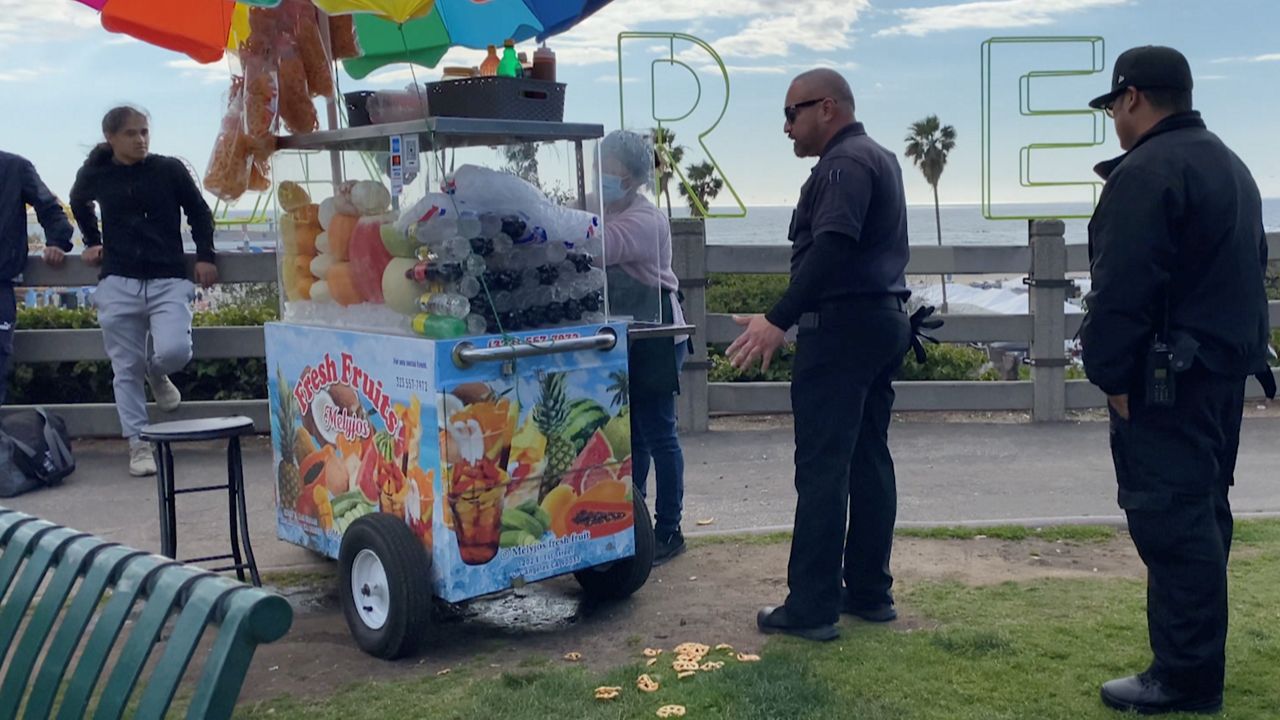LOS ANGELES —The Los Angeles County Board of Supervisors gave final approval Tuesday to a pair of ordinances regulating sidewalk food vendors, while also adopting a subsidy program to offset much of the permit costs included in the new regulations.
The board gave preliminary approval to the vending ordinances last week, with Supervisor Hilda Solis saying there are roughly 10,000 sidewalk vendors selling food in the county, most of them coming from Latino and other communities of color.
“Sidewalk food vending is a critical part of the cultural and civic fabric of our county,” Solis said in a statement after Tuesday’s final vote. “However, fostering and celebrating this microentrepreneurial spirit will not happen if the financial barriers to entry remain too high. With the Department of Economic Opportunity waiving its associated fee for the first year, we will make it easier for vendors to come into compliance with today’s ordinances and follow the same health and safety rules that apply to our brick-and-mortar restaurants. I applaud this action and thank everyone, including advocates and residents, who provided their input during this process.”
The first ordinance approved by the board outlines health-permit requirements for “compact mobile food operations,” which are smaller operations run from carts or other non-motorized equipment. The ordinance will apply to all vendors in the county — except those in Pasadena, Long Beach and Vernon, which all have their own health departments. The city of Long Beach recently approved its own sidewalk vending ordinance.
Under the county ordinance, obtaining a health permit will require the operator to pay an initial fee, ranging from $508 for a low-risk operation selling pre-packaged food to $1,186 for higher-risk vendors who prepare and sell hot food, such as a taco stand or hot dog cart. Vendors will then have to pay ongoing annual fees ranging from $226 to $1,000, depending on the type of vending.
The Board of Supervisors approved a subsidy program Tuesday that will cover the vast majority of cost for the health permits. Vendors who meet several qualifications — including annual revenue of less than $50,000 — can apply for a subsidy that would cover 75% of the health permit costs, lowering the initial fee to between $127 and $297, according to the motion by Solis and Supervisor Holly Mitchell.
Vendors who receive the subsidy will have to take part in educational and technical-assistance workshops conducted by the county Department of Economic Opportunity. The county will set aside $500,000 for the program, with $300,000 coming from American Rescue Plan Coronavirus Local Fiscal Recovery Funds. The other $200,000 would come through ARP Local Assistance and Tribal Consistency Fund dollars.
The second county ordinance approved Tuesday sets regulations for vendors in unincorporated areas, including restrictions on where and when they can operate and requirements for distance between vendors. Vendors would also be barred from connecting to any public utilities such as water and power sources.
Under that ordinance, vendors would have to register with the county and pay a registration fee of $604. That fee, however, will be largely subsidized by the county Department of Economic Opportunity, which will cover the full cost of the permit in the first year, then reduce it to $100 in subsequent years.
“The 10,000-plus sidewalk vendors in LA County are part of our cultural fabric and our local economy,” Kelly LoBianco, director of the Department of Economic Opportunity, said in a statement. “This new Sidewalk Vending Program is critical for unincorporated communities. It opens the door to growth and economic opportunity for those mom-and-pop businesses formerly left behind and also sets forth a clear way of operating that optimizes total community well-being — for our vendors, our legacy businesses, and our customers and our residents.”



